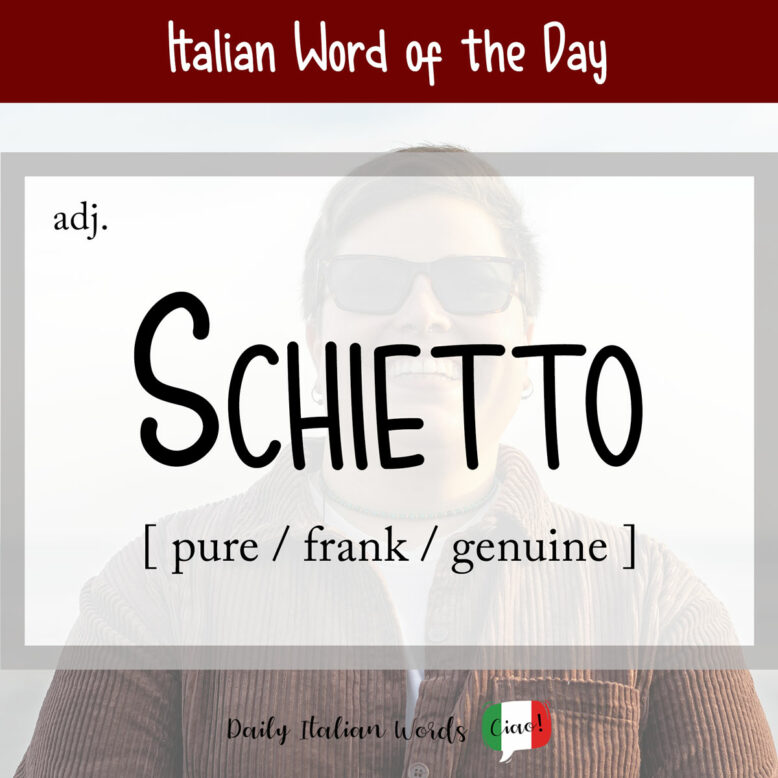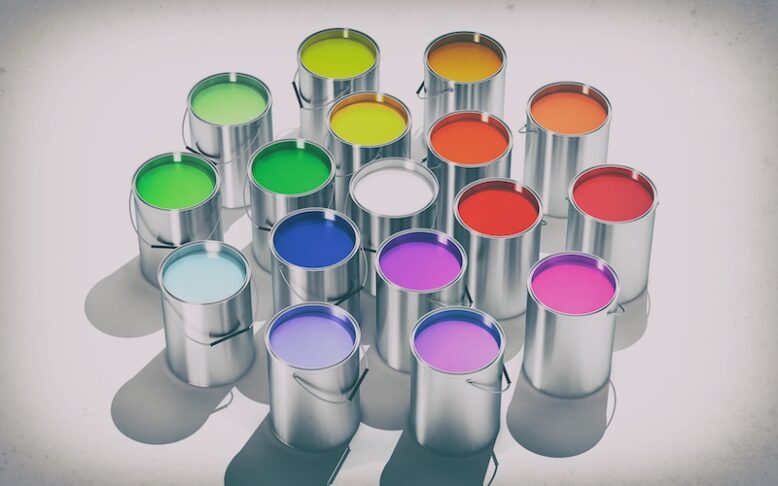Today we’ll be taking a look at the adjective schietto, which comes from the Gothic slaihts via the Tuscan stietto.

Because schietto is an adjective, the ending changes in accordance with the gender and number.
schietto
masculine, singular
schietta
feminine, singular
schietti
masculine, plural
schiette
feminine, plural
Schietto, in the most literal sense of the word, refers to something that is pure, unadulterated, unmodified or genuine. It is often used to talk about:
- food and drink (e.g. vino schietto = unadulterated wine)
- metals and substances (e.g. oro schietto = pure gold)
- languages (e.g. italiano schietto = pure Italian, unaffected by dialects or foreign terms)
Ho provato a leggere una novella scritta in fiorentino schietto ma non ho capito un bel niente!
I tried to read a short story written in pure Florentine but I didn’t understand anything!

Just as common, however, is the figurative meaning for schietto which is frank, straightforward or sincere. Usually intended in a positive sense, it is often used to describe a person’s character or their straightforward way of communicating or behaving.
- un uomo schietto = a straightforward man
- parole schiette = sincere words
- una critica schietta = a blunt criticism
- un’amicizia schietta = a true friendship
- una risposta schietta = a straight answer
Sii schietto e dimmi cosa ne pensi veramente.
Be blunt and tell me what you really think.

Heather Broster is a graduate with honours in linguistics from the University of Western Ontario. She is an aspiring polyglot, proficient in English and Italian, as well as Japanese, Welsh, and French to varying degrees of fluency. Originally from Toronto, Heather has resided in various countries, notably Italy for a period of six years. Her primary focus lies in the fields of language acquisition, education, and bilingual instruction.


